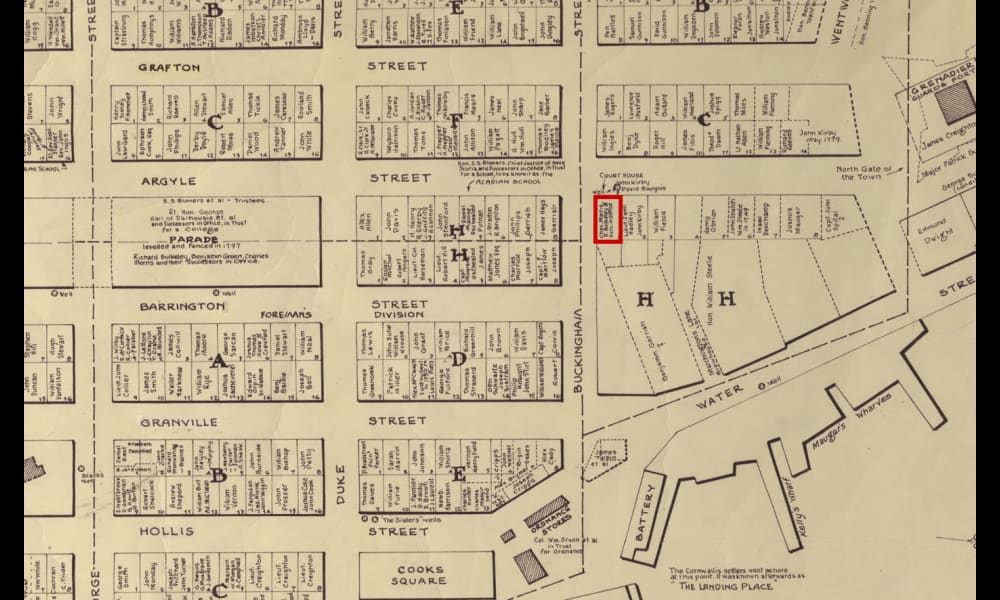On Monday, July 27, 1789, the very first Court House built in Halifax (circled in red on Figure 25) was destroyed by fire along with several other buildings. It sat at the corner of Buckingham & Argyle Streets (now part of Scotia Square). This account of the fire is from the Royal Gazette:
Yesterday evening between eight and nine o'clock, a fire was discovered burning from Mr. Kerby's Soap House. An alarm was instantly given, and the bells ordered to be rung - a great number of people were soon collected from all parts of Town - the Soldiery were likewise ordered to attend and the boats from the Navy, filled with Seamen, hastened on the shore with all possible dispatch, yet notwithstanding every possible assistance that could be given the flames raged with irresistible impetuosity. The Court-house and several buildings were entirely consumed (Nova Scotia Archives 1789, p. 3).
The Mr. Kerby mentioned in the article could be Edward, James, or John Kirby; all three were merchants in Halifax at the time and could have been brothers. Mr. Akin, in his History of Halifax City, stated that the courthouse was destroyed by fire in 1783, but it is a typo (Akin 1895, p. 217), as confirmed by the Royal Gazette (Nova Scotia Archives 1789, p. 3).


